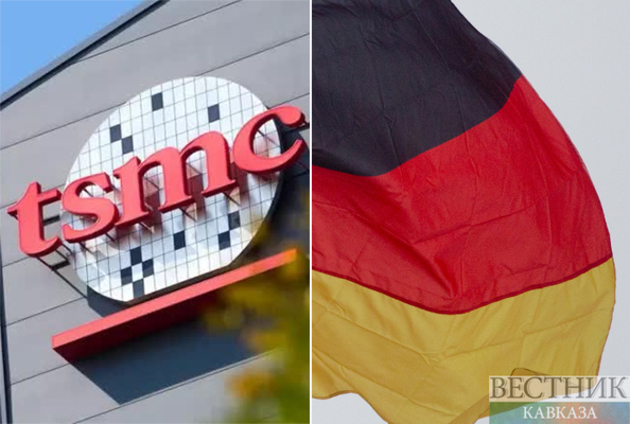Taiwan's largest semiconductor manufacturer TSMC is considering building a plant in Germany to manufacture products for the car industry, but what can Berlin give in return?
According to Politico, Taiwanese semiconductor giant TSMC's confirmation Thursday that it is considering its first chips plant in Europe is set to be an economically attractive — but geopolitically sensitive — project for the likely host country, Germany. In a call on the company’s last quarter earnings, TSMC chief C. C. Wei said that it is “engaging with customers and partners” in Europe “to evaluate the possibility of building a specialty” fabrication plant. It would focus on technology for the car industry, he said, and the building would be dependent upon “customer demand and the level of government support.”
His remarks follow reports from late December that the company is in advanced talks to set up shop in Dresden, focused on 22- and 28-nanometer chips technology for the car industry.
Taiwan has been under pressure to diversify production capacity for its highly sought-after advanced microchips because of the position of Beijing. Taiwan produces 90 percent of the world's most advanced microchips, according to EU foreign policy chief Josep Borrell.
TSMC has been increasing its manufacturing capacity outside Taiwan — with committed investments in Japan and the U.S. state of Arizona. During the call, Wei mentioned the company is also “considering” a second plant in Japan.
EU executives have been courting the semiconductor industry’s “big three” — Intel, Samsung and TSMC — to build so-called mega-fabs in Europe, to up Europe’s market share in the global semiconductor value chain to 20 percent by 2030 (currently it is at 9 percent). Up until now, only Intel has committed to a European move, pledging to build a €17 billion plant in Magdeburg, Germany.
Reports emerged in December that Intel backed away from the initial construction date for Magdeburg, after which the company confirmed that “much has changed” since it made the commitment in March last year. Globally, the demand for chips has been under pressure and may experience a further hit in case of a global recession. It also remains to be seen whether a TSMC production facility focused on the automotive industry fits the description of a “first of a kind” facility, which is one of the preconditions for the European Commission to allow EU countries to provide state aid.
What can Germany give in return?
It’s no secret that Taiwan is not going to lend Europe a hand in building out its chip production capacity for only state aid. The U.S., for instance, has been drawing up arms deals with Taiwan during successive administrations, while Japan is also actively taking into account a potential Taiwan Strait conflict in its latest defense policy.
German lawmakers, on the other hand, have been vowing nonmilitary, moral support. "There's no question to send weapons to Taiwan. That is not the question," Marie-Agnes Strack-Zimmermann, chair of the Bundestag's defense committee, said while on a trip to Taipei, adding that the message from politicians and people in Taiwan "is not 'please Germany, send us weapons.'" "The situation here is a different one. Our role is less military ... It's an economic question," Strack-Zimmermann said.
Chancellor Olaf Scholz's government is preparing a new China strategy, but there is widespread speculation that it could include some watering-down of the tougher language on China, because of the business community's concerns.
A year ago, Taiwan's National Development Minister Kung Ming-hsin, who also sits on TSMC's board of directors, said Europe's demand for Taiwanese chips came mainly from the car industry. Taiwan's President Tsai Ing-wen, in a meeting with European lawmakers late last year, said her country would like to deepen cooperation with Europe on semiconductors.
Diplomats believe that if Taiwan can strike a deal with Germany, it could be a game-changer in terms of influencing Berlin's long-standing Beijing-centric Asia policy. "Without investments on the ground, it's difficult to persuade Germany to take a deeper look at the issue," a Western diplomat based in Taipei said on condition of anonymity.






